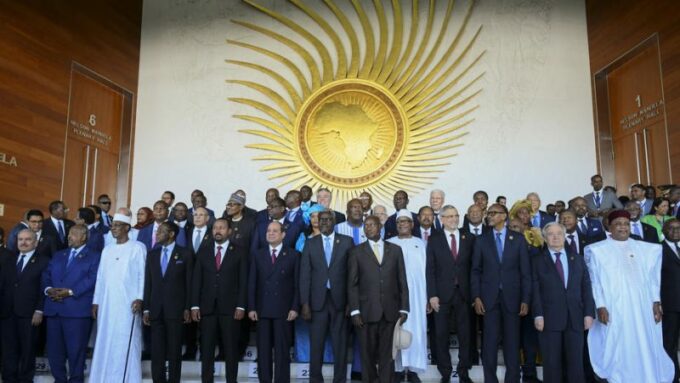
Nevanji Madanhire The European Union is meeting with leaders of the African Union in Brussels in a two-day summit beginning yesterday.
The Washington Post said the EU wanted to re-engage with African nations and counter the growing influence of China and Russia across the continent.
It said: “The aim for the EU is clear: to remain Africa’s partner of choice.”
Very interesting!
But why had the European Union let the Eurasian bloc (dominated by China and Russia) run all over it and replace the European bloc as Africa’s partner of choice?
Since the fall of the Berlin Wall 30 years ago which marked the end of the Soviet Union, the EU revelled in the belief that the world had become unipolar, meaning the Western bloc took pride of place in world affairs.
The Europeans were happy to pander to the whim of the supposed single super power, the United States.
They followed whatever the US dictated.
- Chamisa under fire over US$120K donation
- Mavhunga puts DeMbare into Chibuku quarterfinals
- Pension funds bet on Cabora Bassa oilfields
- Councils defy govt fire tender directive
Keep Reading
During George W Bush’s War on Terror, they followed and expended their energies fighting wars in the Middle East.
Africa had ceased to be a Cold War front and therefore was to be left to wallow in its “darkness”.
China saw an opportunity and capitalised on the lack of competition and began to forge alliances with important countries on the continent.
So did Russia!
Now China’s Belt and Road Initiative has taken root and has changed the face of the continent.
“The Belt and Road Initiative aims to develop markets and new trade routes connecting China with the rest of the world by weaving a network of ports, bridges and power plants that will yield diplomatic clout and global power.”
The EU is now trying to counter this by what it calls the Global Gateway project.
This week it dangled a €150-billion (US$170 billion) investment plan on Africa.
It says the project is expected to mobilise, in total, up to €300 billion euros (US$341 billion) in public and private funds by 2027.
Meanwhile, China has so far sunk US$46,1 billion in Africa making it Africa’s fourth largest investor, ahead of the United States since 2014, according to available statistics.
The China Africa Development Fund (CADF) inaugurated on June 26, 2007 “gives priority to a number of industries that are central to the development of African countries: Agriculture and manufacturing; infrastructure and related industries such as electric power, energy facilities, transportation and urban water supply; and natural resources such as oil, gas and minerals.
Africa itself has not been static in the face of the EU investment hiatus.
Last year it launched the African Continental Free Trade Area (AfCFTA) which brings together 54 of the continent’s 55 countries and has a population of 1,3 billion people.
It is the largest free trade area in the world in terms of the number of participating countries, competing well with the World Trade Organisation.
This is a huge opportunity for anyone who wishes to do business with the continent and the EU has just realised this.
Some analysts argue that African countries can benefit from the European-Eurasian competition by playing them against each other. But that sounds almost dishonest.
AfCFTA will benefit more if it works as a block.
It is obvious the EU will be selective when it chooses who to do business with.
Often, as is the case with Zimbabwe, they have been angry on behalf of the UK and US and imposed sanctions.
The AU, which gave birth to AfCFTA, should resist this kind of divisiveness and dictate that any investments should be determined by the AU not by extraneous forces.
The AU through AfCFTA should be able to stand up to the bullying and paternalism of this former colonial bloc.T











